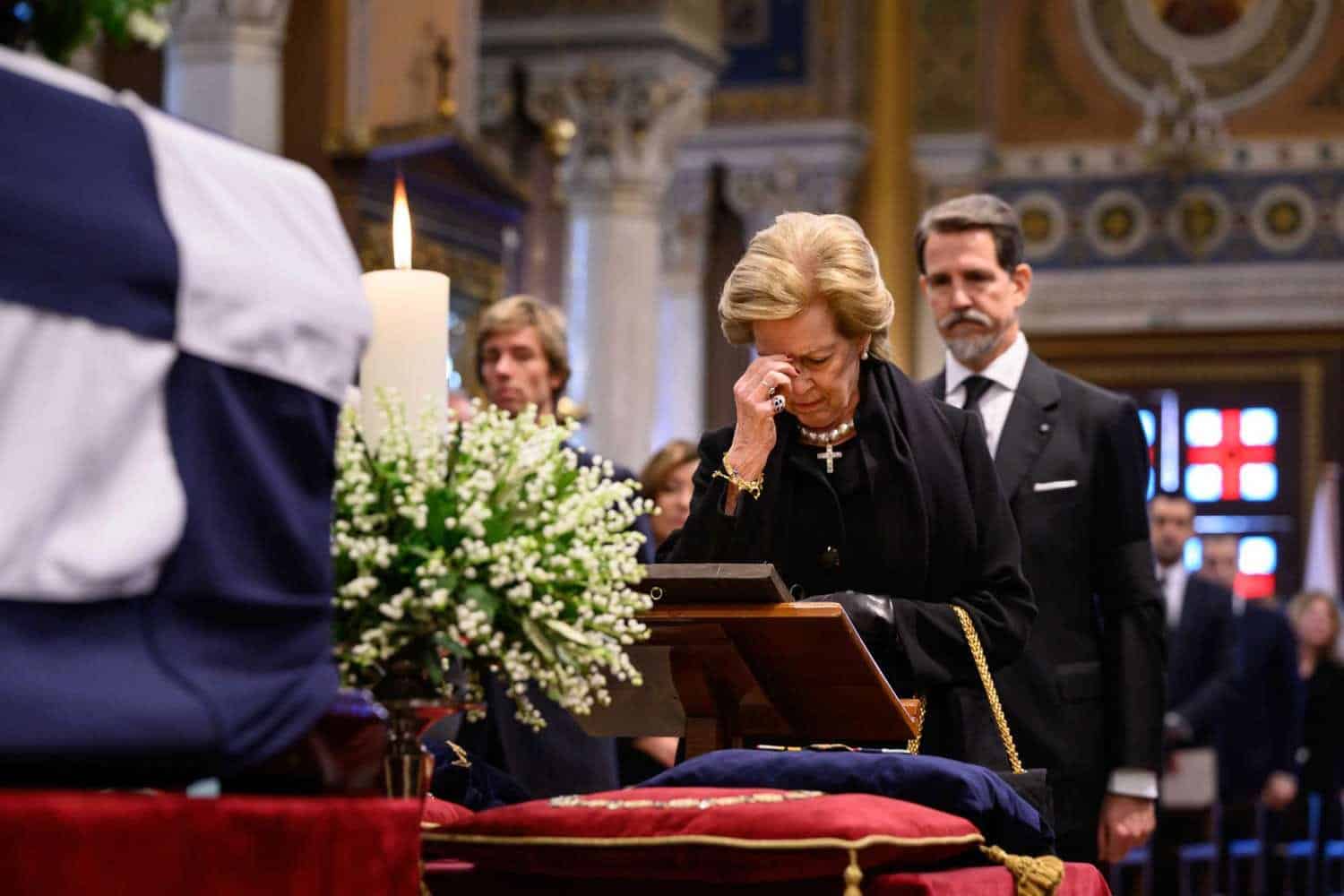On January 10 Greece’s last king, Constantine II, died in Athens at the age of 82. As a royal, who had reigned for only three years before being exiled and spending most of his life in the United Kingdom, and later returning to Greece as a private citizen, he was laid to rest six days after his death.
For longer than most people can remember, he was a king without a crown, a monarch without a kingdom. But for a few hours on the day of his funeral, Constantine II was king of the Hellenes again, or at least for the thousands of his former subjects who queued patiently outside the small chapel adjacent to Athens’ Metropolitan Cathedral to pay their final respects.
The funeral also featured a gathering of royals that Greece had not seen in decades. Kings and queens, princes and princesses from the royal houses of Denmark, Spain, Norway, the Netherlands, Sweden, Belgium, and the United Kingdom all attended the funeral to pay tribute to a man who maintained close ties with Europe’s historic thrones.
However, the former king’s funeral was fraught from the start. Admirers had hoped for an official send-off fit for a former head of state. Critics had slammed such an idea. Finally, the centre-right government decided that in a presidential republic, the former monarch should be buried as a private citizen. His coffin was allowed to lie in state for five hours, but neither Greek president Katerina Sakellaropoulou nor prime minister Kyriakos Mitsotakis nor any other party leader attended.
In the days following the funeral, social media sites erupted with rage as Greek monarchists criticised the Greek government’s stance.
“Such an honour is bestowed not on a person, but on an office. And, whether we like it or not, the last Greek king became head of state legally and in accordance with the constitutional order,” one said. Another monarchist argued that a public funeral would show everyone that democracy is not afraid and respects historical memory.
As the monarchists’ outcry grew, with the consensus being that the restoration of the Greek monarchy would be preferable to the poor examples set by the string of politicians who have governed Greece in recent years, the antiroyalists expressed their objections about the Greek royal family. “We will never forget the former king who lived lavishly on the backs of the Greek people, and the damage he caused to our country,” wrote one.
“Royal families are all about the glitz, horse-drawn carriages, and lavish weddings and funerals that we see in Britain. They also represent darkness and shady deals at the expense of the people and democracy,” it continued.
Constantine ascended to the throne in 1964, during a turbulent period in Greek history that culminated three years later in a military coup. He initially appeared to support the insurgents. He later claimed that he had no choice because the palace was surrounded by army tanks, but there were persistent rumours that he had been pressured to do so by the American embassy to avoid another radical government. Many Greeks and civilian politicians never forgave the king for agreeing to the coup, but within months he attempted his own countercoup, which failed, forcing him and his family to flee into exile, first in Rome and then, a few years later, in London.
In 1974, Greeks voted to abolish the monarchy, and the former king was stripped of his Greek citizenship. In 2013, he returned to Greece with his family, claiming he desired nothing more than a quiet life.
The funeral of Greece’s former king, and the Greek government’s handling of it, sparked a campaign from royal sympathisers calling for the restoration of Greece’s monarchy, while those opposed believe it is just a passing phase on social media.
I have always admired the monarchy and the pomp and circumstance that surrounds it. Monarchist or not, one must admire how the former Greek royal family conducted themselves in public with such dignity. Perhaps the most moving moment was when former Queen Anne-Marie of Greece made a warm gesture of thanks to the crowds gathered outside the cathedral by placing her hand over her heart.
Greek media has also reported that the new head of the Greek royal family, Crown Prince Pavlos II, will relocate from New York to Greece with his wife. “This is not the end, father,” Prince Pavlos said in a loving tribute to his late father. Perhaps Greek monarchists can hold out hope.







Click here to change your cookie preferences